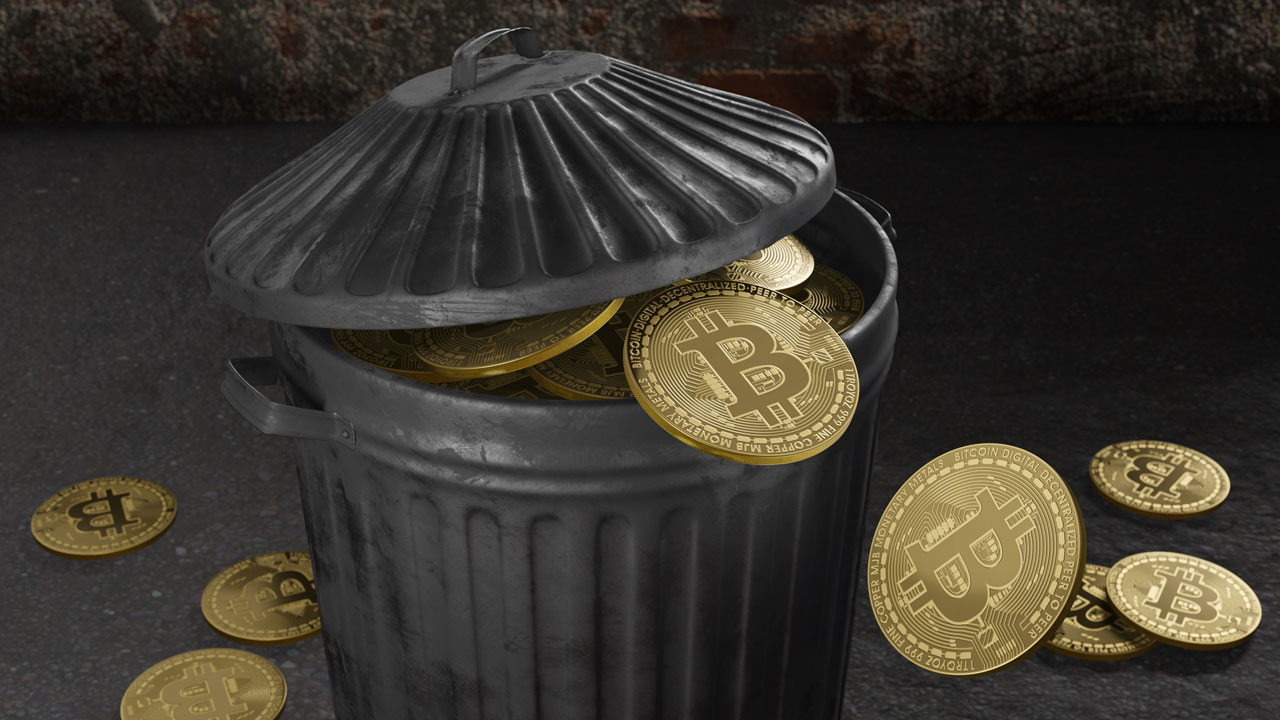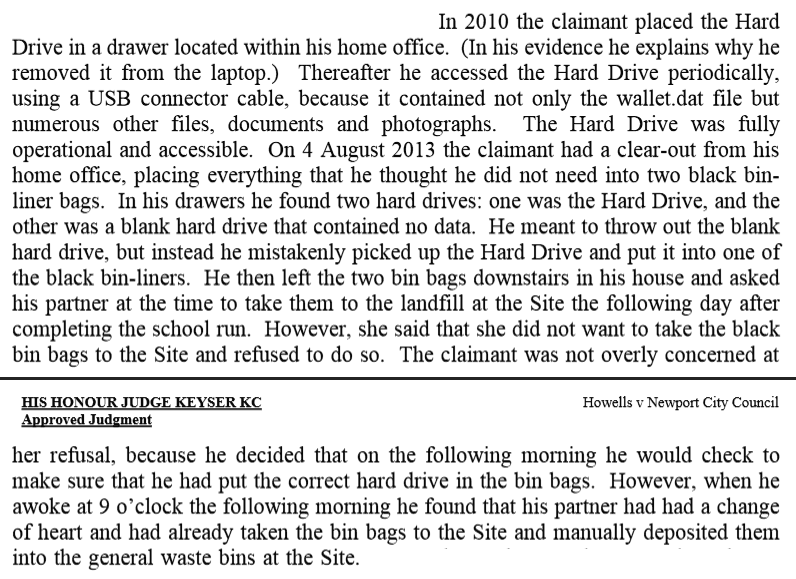
The legal arguments over $750M worth of Bitcoin buried in a Welsh dump have ended unhappily for a man who lost his crypto HDD in the trash 12 years ago. On Thursday, Judge Keyser KC of the British High Court ruled James Howells' case had no reasonable chance of success at a trial. Therefore, the court sided with the council and struck out Mr Howell's legal action, in which he had hoped to gain legal access to the dump for excavation or get £495M ($604M) in compensation from the council.
We last wrote about Mr Howells's trials and tribulations in October last year, when he, backed by a consortium, decided to sue the local council "because they won't give me back my bin (trash) bag." At that time, the lost 8,000 Bitcoins were valued at $538M; today, they would be worth over $750M.
Howells' unfortunate predicament began in August 2013, when he discovered his girlfriend had taken his old laptop hard drive, which contained a wallet with Bitcoins he had mined back in 2009, to the council dump. However, Howells admits he put the device in the trash after clearing some old office bits and pieces. According to Howells, you can read precisely what happened in an excerpt from the ruling, reproduced below.

There are two major legal problems concerning this treasure in the trash. First, under UK law, anything you throw in the garbage to be collected by the council becomes the council's legal property. Second, Howells' case falls foul of the UK's six-year statute of limitations. Although the lost Bitcoins were known about in 2013, Howells only decided to sue the council in 2024.
The BBC shared some post-judgment comments from Howells in a report yesterday. In them, he admitted he was "very upset" about the decision. His statements didn't address that the council now owns the HDD/data. However, he had some interesting arguments to counter the six-year statute of limitations mentioned by the judge.
Howells told the BBC that he had been "trying to engage with Newport City Council in every way which is humanly possible for the past 12 years." This could reasonably explain the delay in legal action. He also suggested that if he had made it to trial, "there was so much more that could have been explained" and that it would have made a difference in the legal decision.
A distraught Howells repeated his offer to share the $750M crypto treasure with the council and donate 10% to the local community.
Even if Howells successfully accessed the Welsh landfill site, securing the errant Bitcoins would remain a long shot. Howells and his consortium have narrowed down the HDD's location to approximately 100,000 tonnes of old waste out of 1.4M tonnes thought to be composting at the site. There is also the question about the condition of the drive, which could have been subject to high pressures and liquid contamination for several years.
Previously, we reported that the would-be BTC rescuers estimated an 80% chance that the precious HDD data would be retrievable. Howells and the consortium were ready to spend about $13M on an excavation and search project lasting up to 36 months.







